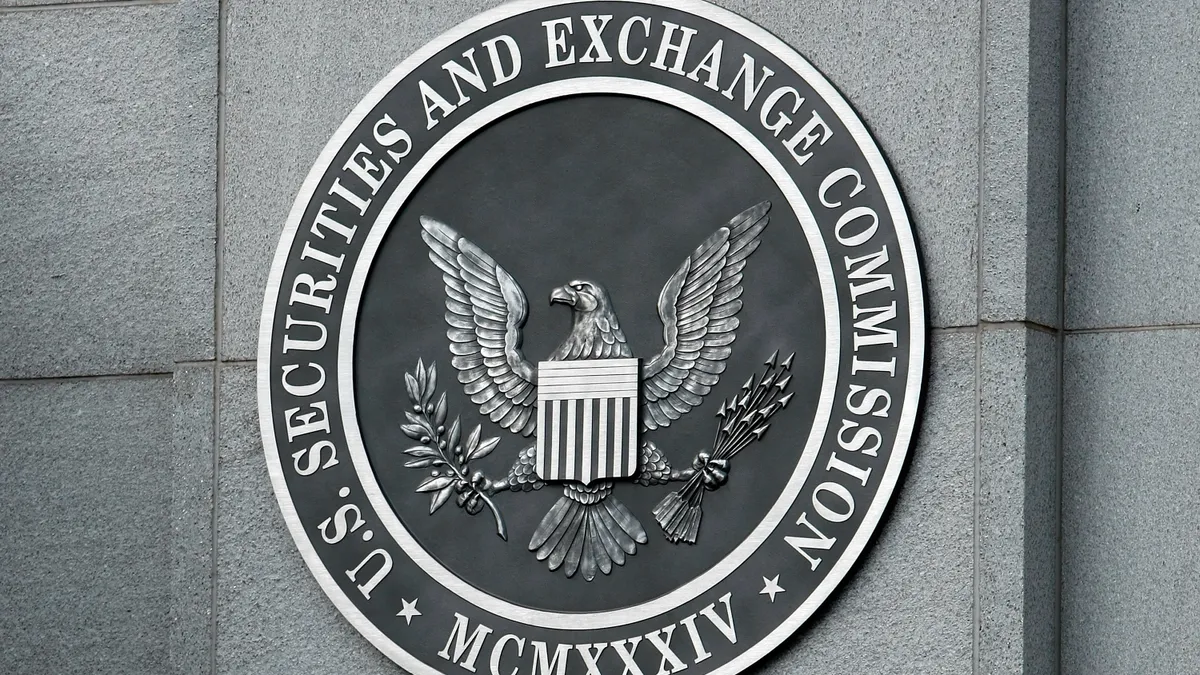Dive Brief:
- Douglas Roth, the former longtime CFO of Long Island, New York-based drug manufacturer Aceto, has been sentenced by the U.S. District Court to six months in prison and six months of house arrest for securities fraud for insider trading, Newsday reported Wednesday. He will also have to pay a $150,000 fine.
- Roth sold his shares in the now-bankrupt company in April 2018, two weeks prior to public disclosure of its financial troubles. Roth has already forfeited the $147,803 he avoided losing in 2018 by selling his shares, Newsday said.
- Roth’s sentence is shorter than the 12 to 18 month range proposed by Mark Lesko, the then-Acting U.S. Attorney for the Eastern District of New York.
Dive Insight:
In early 2018, Aceto’s sales and earnings began declining precipitously, the Securities and Exchange Commission said in its November 2020 complaint against Roth, which was filed the same day the U.S. Attorney's Office for the Eastern District of New York brought criminal charges against him.
Aceto, at that point, began testing the value of its intangible assets for a possible impairment, which led it to write down the value of those assets by more than $235 million.
Roth retired from the pharmaceutical company on March 31, 2018, the end date of its third fiscal quarter, after leading its finances for 17 years. He had worked on each of Aceto’s financial issues and received “material, nonpublic information” about them, the SEC said. “Specifically, Roth learned Aceto was unlikely to meet its financial projections for the quarters ending March 31, 2018 and June 30, 2018."
On April 3 and 4, 2018, Roth sold nearly 70,000 shares of his Aceto stock, all of which had vested upon his retirement, for about $7 each.
Two weeks later, on April 18, Aceto said its financial situation had become severe, and it might be forced to write down more than $100 million in goodwill assets and default on its commitments to lenders. Shares closed at $2.66 following the news release.
In February 2019, Aceto filed for Chapter 11 bankruptcy protection, citing insurmountable debt and losses. Two months later, its CEO, William Kennally, confirmed the business would be liquidated. Aceto’s assets were sold for $437 million across two auctions, Newsday reported.
“By knowingly … trading in violation of the duty of trust and confidence that he owed to Aceto and its shareholders, Roth avoided losses of more than $305,000,” the SEC said.
"We were, of course, disappointed that the judge determined a jail sentence was appropriate and were hopeful to the end that [Roth's] sentencing would result in a different outcome," Roth's attorney, Kenneth Abell, told Newsday on Tuesday. "But, consistent with his approach throughout this case, Doug accepts and respects the judge’s decision and is prepared to report to jail next month."
"I committed a crime by trading stock with knowledge of material non-public information. I used bad judgment,” Roth wrote in a letter to the judge prior to sentencing, adding that he’d already taken full responsibility when he pled guilty in November.
A sentence of probation would be insufficient to provide “just punishment, to promote respect for the law and effect adequate deterrence, given the seriousness of [Roth’s] conduct,” prosecutors said.
Roth’s attorney cited advice from a financial adviser to “diversity [his] portfolio” as the impetus for selling the stock, he wrote the judge in a memo.
Representatives for Roth and Aceto did not immediately respond to requests for comment.












